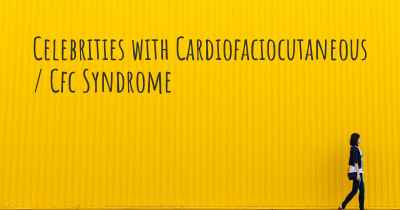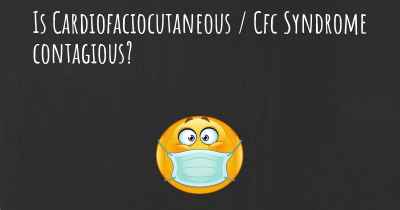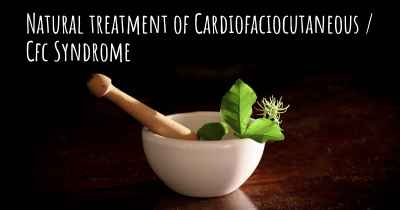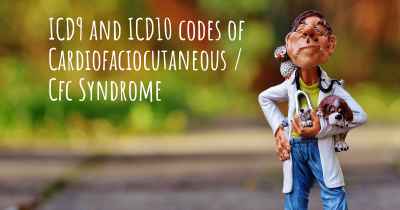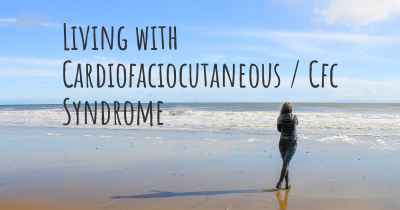How do I know if I have Cardiofaciocutaneous / Cfc Syndrome?
What signs or symptoms may make you suspect you may have Cardiofaciocutaneous / Cfc Syndrome. People who have experience in Cardiofaciocutaneous / Cfc Syndrome offer advice of what things may make you suspicious and which doctor you should go to to receive treatment

Cardiofaciocutaneous (CFC) syndrome is a rare genetic disorder that affects various systems of the body. It is characterized by abnormalities in the heart, facial features, and skin, along with developmental delays and intellectual disabilities. If you suspect that you or someone you know may have CFC syndrome, it is important to consult with a healthcare professional for a proper diagnosis.
Signs and symptoms of CFC syndrome can vary widely among individuals, but there are some common features to look out for. Infants with CFC syndrome may have a weak muscle tone (hypotonia) and experience feeding difficulties. As they grow, they may exhibit delayed development, such as delayed speech and motor skills. Facial characteristics often include a high forehead, widely spaced eyes, droopy eyelids, a flat nasal bridge, and a prominent chin. Additionally, individuals with CFC syndrome may have heart defects, such as valve abnormalities or structural issues.
Diagnosing CFC syndrome typically involves a combination of clinical evaluation, genetic testing, and medical history assessment. A healthcare professional, such as a geneticist or pediatrician, will examine the individual's physical features and may order genetic tests to identify specific mutations associated with CFC syndrome. These tests may involve analyzing a blood or saliva sample to detect changes in certain genes.
Treatment and management of CFC syndrome focuses on addressing the specific symptoms and complications that arise. Since CFC syndrome affects multiple systems, a multidisciplinary approach involving various specialists may be necessary. This can include cardiologists, dermatologists, developmental pediatricians, and therapists. Early intervention programs, such as speech therapy and physical therapy, can help individuals with CFC syndrome reach their developmental milestones.
Support and resources are available for individuals and families affected by CFC syndrome. Connecting with patient support groups and organizations can provide valuable information, emotional support, and opportunities to connect with others facing similar challenges. These groups often offer resources, educational materials, and conferences to help individuals and families navigate the complexities of living with CFC syndrome.
Remember, only a healthcare professional can provide an accurate diagnosis of CFC syndrome. If you suspect that you or someone you know may have this condition, it is important to seek medical advice and guidance. Early diagnosis and intervention can make a significant difference in managing the symptoms and improving the quality of life for individuals with CFC syndrome.

